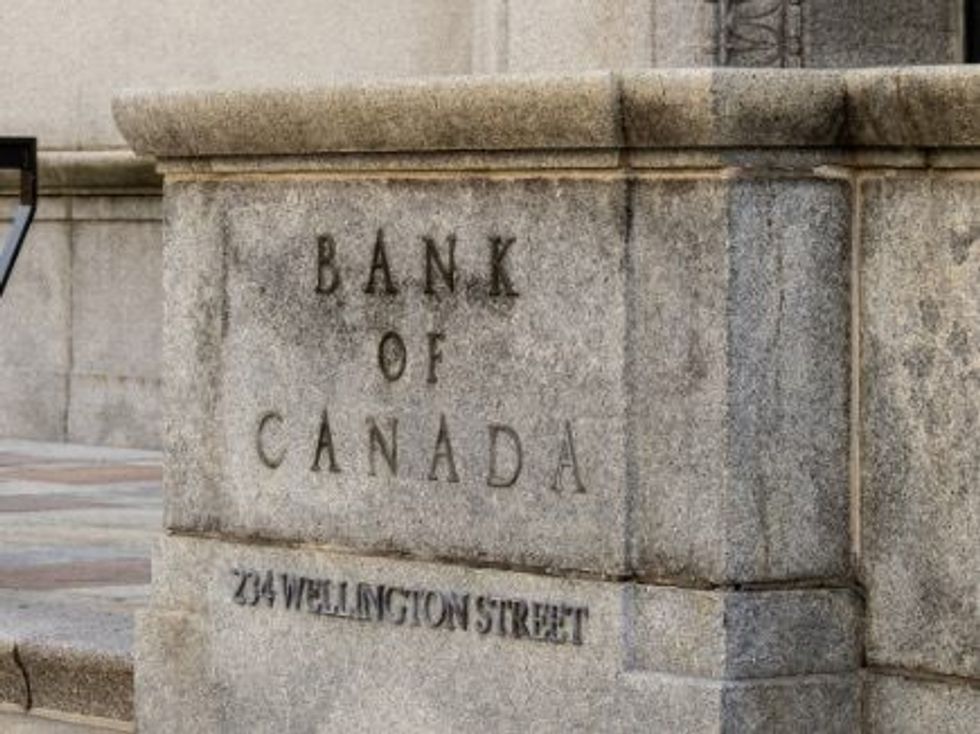Canadian economists say property price declines are in store for 2023.
This reality will come, they say, despite signs the Bank of Canada’s (BoC) perpetual interest rate hikes may be winding down, with its holding of the overnight rate on March 8 at 4.5%.
According to finance comparison site Finder’s latest BoC Interest Rate Forecast Report, for the first time in the current rate hike cycle, an overwhelming majority of Finder's economic and industry experts (88%) correctly predicted the BoC would hold the interest rate. Meanwhile, 12% predicted a rate hike of 0.25%.
Additionally, 75% agreed the rate should have been held to allow the impact of last year’s rate hikes to continue to be felt, without putting further strain on indebted Canadians by continuing to increase. “There are signs that rate hikes to date have been sufficient to cool the economy and bring inflation down,” says Taylor Schleich, strategist for National Bank of Canada.
As the report outlines, however, even with this pause in climbing rates, compared to a decade of historically low rates, the impact of the BoC’s elevated overnight rate will continue to put pressure on heavily indebted Canadians. Some may face insolvencies due to the inability to carry large loans -- including mortgages.
While there may be some relief on the rate hike front, that doesn’t mean that they’ll drop dramatically any time in the future. In fact, 64% of Finder’s economic and industry experts believe inflation won’t reach the target 1-3% range until 2024 or later.
“The economy is likely to slow in subsequent quarters without further hikes, due to the lagged impacts of prior rate increases,” says Avery Shenfield, chief economist for CIBC.
Tony Stillo, Director of Canada Economics echoes her thoughts on this hard-hitting reality. “The Canadian economy is very sensitive to interest rates because of elevated household debt and overvalued housing, and is likely already in the early stages of an emerging recession,” says Stillo.
Murshed Chowdhury, Associate Professor at the University of New Brunswick, advocates for caution. "Although inflation remains high, the bank must assess the efficacy of its current tightening policy,” he says. “Additionally, increasing rates further could pose a significant risk to economic growth and potentially trigger a recession. The latest GDP figures indicate that the economy didn't expand in the recent quarter, which warrants the Bank to exercise greater caution.”
However, Philip Cross, senior fellow at Macdonald-Laurier Institute, holds a contrary view. He believes rates should increase by another 50 basis points, pointing to no signs of weakness in labour markets in North America, while inflation continues to pick up in Europe. “This raises the risk of above-target inflation becoming embedded in our economy,” says Cross.

While we all may wish for a return to historically low interest rates, patience may be in order as Governor Macklem and the BoC appear inclined to hold the overnight rate steady for the foreseeable future.
The good news is that they won’t likely raise them. Only a few of the Finder experts believe the BoC will consider additional rate increases in 2023. In fact, only one anticipates a need for an increase to the overnight rate in April 2023, while another expert suspects a potential rate decrease in September 2023.
It’s not until October 2023 that 13% of Finder experts believe the BoC will start to reduce overnight rates, prompting reductions in interest rates, across the country. Stillo anticipates the BoC to hold steady in 2023, with rate reductions coming in 2024. He also suggests that the BoC will not consider a rate increase unless there is overwhelming economic evidence of a heated economy.
"We expect the Bank of Canada will hold the policy rate steady at 4.5% through 2023, before gradually easing rates to a neutral level beginning sometime in early 2024,” says Stillo. “The BoC has now ‘conditionally paused’ hiking the policy rate as it assesses the impact of past rate increases on the economy…The Governing Council will require a buildup of evidence before potentially hiking rates rather than act on one or two data points such as January's 150,000 job surge or December's robust advance in retail trade.”
One big question remains: when will inflation be tamed? With climbing inflation the culprit behind our climate of sky-high interest rates, all eyes of cash-strapped Canadians remain glued on the latest figures. Most panellists, including Charles St-Arnaud, Chief Economist for Alberta Central, maintain that “inflation is likely to remain sticky,” which is why reaching the target likely won’t be achieved until next year, or later.
“The biggest interest rate increases occurred in mid-2022. If it takes around 18 months for these interest rate increases to have maximum impact, then the effect of those moves should occur in late 2023,” says Moshe Lander, Senior Economics Lecturer at Concordia University. “If inflation rates come down around 0.25% per month, then inflation will hit the upper band of the Bank's target range in early 2024.”
Meanwhile, talks of a looming mild recession are still making headlines. While the unemployment rate held steady at 5% in January 2023, the report highlights that economic headwinds -- like persistent inflation dampening consumer spending and recent news about job losses -- have experts wondering how the year will shape up if Canada’s economy isn’t growing. On average, the panel believes the unemployment rate will reach 5.9% by the end of 2023 -- nearly a 1% increase from the current unemployment rate.
Derek Holt, VP and Head of Capital Markets at Scotiabank, sees a modest half-percentage-point increase to unemployment by end of year, based primarily on “slightly faster growth in the workforce, including through immigration, than [via actual] sustainable employment gains," according to the report.
Angelo Melino, professor at the University of Toronto, expects to see unemployment at 6% by year end due to “a slowdown in economic growth that will reduce the demand for labour.” Meanwhile, Lars Osberg, McCulloch Professor of Economics for Dalhousie University, sees a more aggressive increase to 6.5% by year end citing, “slowing construction and consumer spending.”

That brings us to the real estate market. Nearly all experts -- 88% -- predicted a decline in real estate prices in 2023. Most (55%) believe the country’s home prices will drop 10% annually by end of 2023. One expert anticipates a 15% drop by the end of the year. The average price of a Canadian home sold in January was $612,204, marking a year-over-year decline of more than 18%, according to the Canadian Real Estates Association.
As Carl Gomez, Chief Economist and Head of Market Analytics for CoStar Canada explains, “With pent up demand among both buyers and sellers further adjustments to prices may be required to get the market moving.”
Lander notes that the supply-side of housing -- or lack there of it -- is currently keeping prices higher, despite rapid rate hikes over the last year. “Housing prices should fall a lot more, but supply remains constrained thanks to overly restrictive zoning laws in many Canadian municipalities,” says Lander. “Once people readjust to the higher interest rates, demand will recover and limit the fall in prices.”
Furthermore, 100% of experts believe that insolvencies will keep rising in 2023, particularly among homeowners. “Households and businesses have been forced to incur a lot of debt,” says Nikola Gradojevic, Professor of Finance at the University of Guelph. “It is difficult to maintain the same living standard with almost no salary increments amidst rampant inflation. Utility and grocery bills are out of control.”
For some households, it may be too much to handle. “When variable rate mortgages renew, some households will be squeezed enough [to result in] forced selling [of their home],” said Sherry S. Cooper, Chief Economist for Dominion Lending Centres.






















